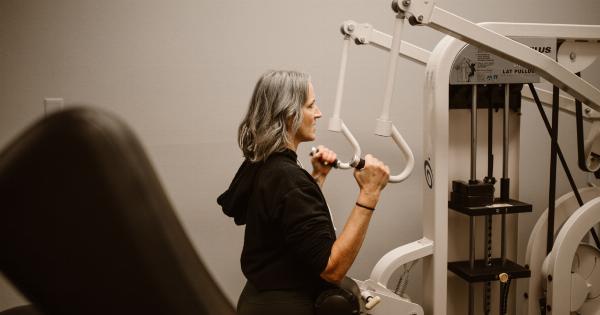Menopause is a natural phase in women’s lives that occurs when their ovaries stop producing eggs.
This transition marks the end of menstrual periods and involves significant hormonal changes that can affect women’s physical and emotional health. Although menopause is a common experience that affects millions of women worldwide, many individuals still feel unsure about what it is and how to manage its symptoms.
In this comprehensive guide, we will cover the essential information about menopause, including its causes, symptoms, diagnosis, treatment options, and self-care strategies.
What causes menopause?
Menopause is caused by the natural decline of reproductive hormones, including estrogen, progesterone, and testosterone. These hormones play a critical role in the menstrual cycle, fertility, bone density, and other physiological processes.
As women age, their ovaries produce less of these hormones until they stop releasing eggs altogether, usually around the age of 50. However, menopause can happen earlier or later than the average age due to various factors, including genetics, medical conditions, or medical procedures.
What are the symptoms of menopause?
Menopause symptoms can vary greatly from one woman to another and may include:.
- Hot flashes and night sweats
- Vaginal dryness and discomfort during intercourse
- Mood swings, irritability, and depression
- Insomnia and sleep disturbances
- Decreased libido and sexual desire
- Memory problems and difficulty concentrating
- Joint pain and stiffness
- Weight gain and changes in body composition
Some women may experience few or mild symptoms, while others may have more severe and persistent ones. The duration of menopause symptoms can also vary, lasting from a few months to several years.
How is menopause diagnosed?
Menopause is usually diagnosed by a woman’s age, symptoms, and menstrual history. If a woman has not had a period for 12 months or more and is over 45, this typically indicates that she has gone through menopause.
However, if menopause occurs before the age of 40, it is considered premature and may require further testing and medical evaluation. Blood tests can measure hormone levels and rule out other medical conditions that may mimic menopause symptoms, such as thyroid disorders or autoimmune diseases.
What are the treatment options for menopause?
There is no cure for menopause, but several treatment options can help alleviate its symptoms and improve women’s quality of life.
Hormone replacement therapy (HRT) is a popular option that involves taking estrogen and sometimes progesterone to replace the hormones that the ovaries no longer produce. HRT can reduce hot flashes, vaginal dryness, and other symptoms, but it carries some risks, including the increased risk of breast cancer, stroke, and blood clots.
Other medications, such as selective serotonin reuptake inhibitors (SSRIs) and gabapentin, can also help manage hot flashes and mood symptoms.
Non-medical treatments that can benefit women with menopause include cognitive-behavioral therapy (CBT), acupuncture, and physical exercise. CBT can help women cope with anxiety, depression, and other emotional challenges that menopause can bring.
Acupuncture may help alleviate hot flashes, sleep problems, and other symptoms. Regular physical activity, such as walking, swimming, or yoga, can improve bone density, joint health, and overall well-being.
What are some self-care strategies for menopause?
Self-care is an important aspect of menopause management and can help women maintain their physical and emotional health. Here are some self-care strategies that women can adopt:.
- Eat a healthy and balanced diet rich in calcium, vitamin D, and other nutrients that support bone health
- Stay hydrated by drinking plenty of water and avoiding caffeine, alcohol, and spicy foods that can trigger hot flashes
- Exercise regularly to improve circulation, boost energy, and reduce stress
- Practice relaxation techniques such as meditation, deep breathing, or yoga to lower anxiety and promote relaxation
- Get enough sleep by establishing a regular bedtime routine, avoiding electronic devices before bedtime, and creating a comfortable sleep environment
- Use vaginal lubricants or moisturizers to relieve vaginal dryness and discomfort during intercourse
- Talk to a therapist, counselor, or support group to express emotions, share experiences, and receive guidance and encouragement
In conclusion
Menopause is a natural and inevitable phase in women’s lives that involves hormonal changes and physical and emotional symptoms.
Although menopause can be challenging, women can manage its symptoms and maintain their health and well-being by adopting appropriate medical and self-care strategies and seeking professional support when needed. By understanding menopause, women can embrace this life transition with confidence and empowerment.





























